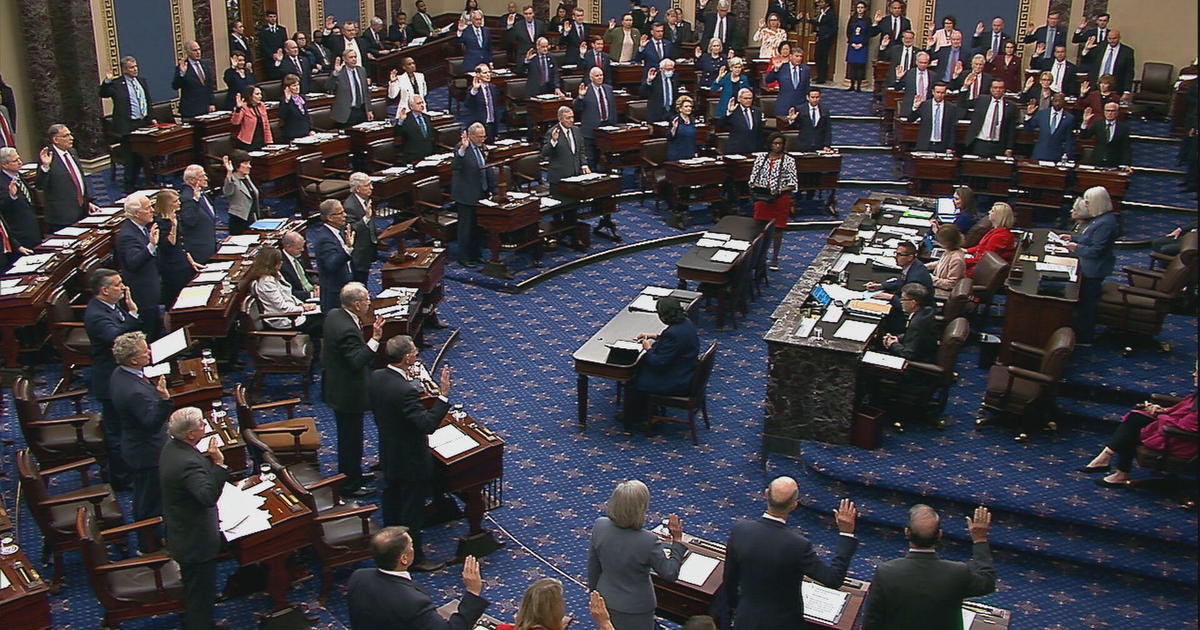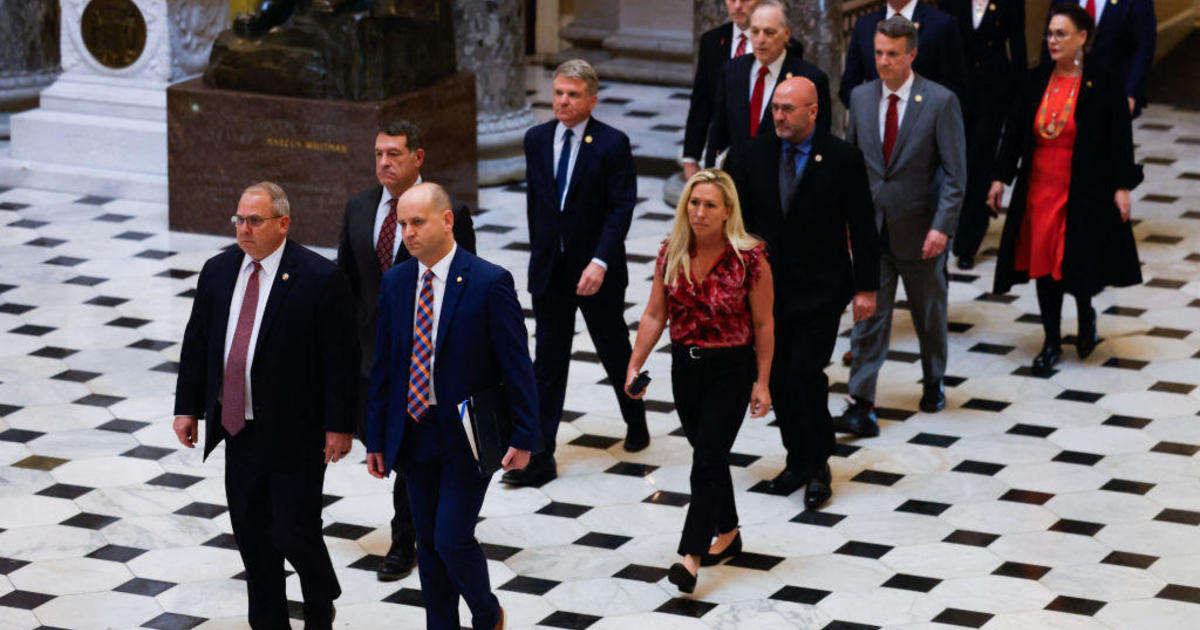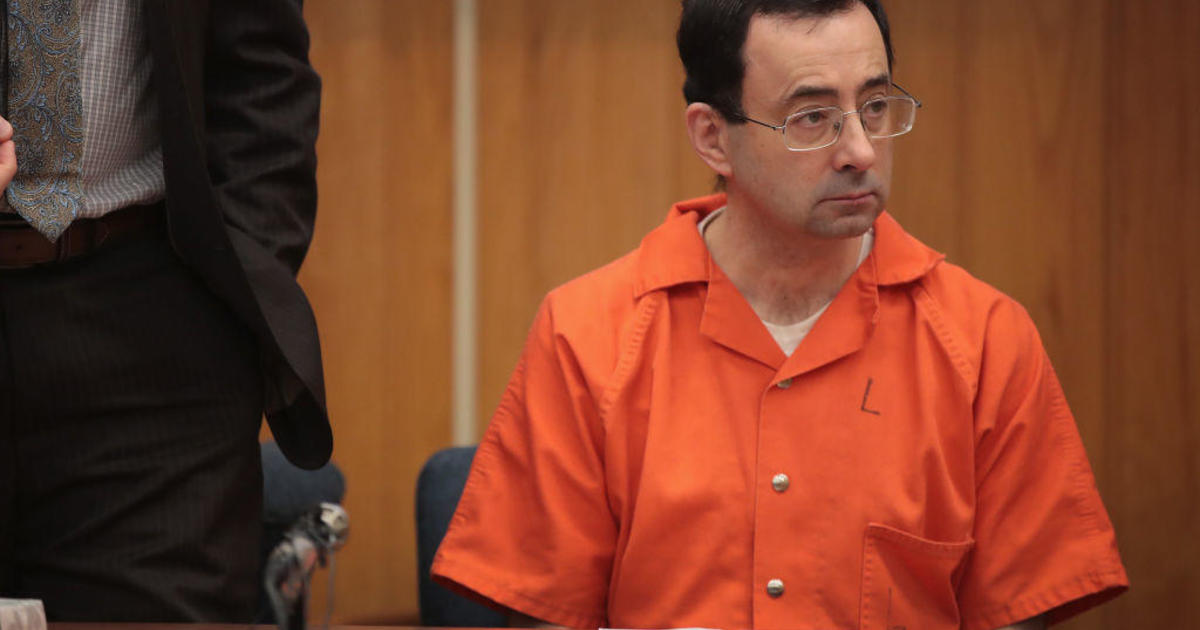House, Senate negotiators begin talks on Trump's border wall funding
Capitol Hill negotiators kicked off talks Wednesday on a Department of Homeland Security (DHS) spending bill aimed at reaching an agreement on border security funding before funding lapses on Feb. 15. The federal government is now back at work after a 35-day shutdown over $5.7 billion for a southern border wall or barrier sought by President Trump. Republican and Democratic conferees hope to hash out a compromise while averting yet another government shutdown.
At the outset of the talks, both Republicans and Democrats appeared willing to work toward a bipartisan solution to the border crisis. Sen. Richard Shelby, R-Alabama, who chairs the Senate Appropriations Committee said lawmakers "owed" it to the American people to reach a compromise on border security. Sen. Patrick Leahy, D-Vermont, meanwhile, urged his colleagues to find solutions "rooted in facts, not just campaign rhetoric", adding that both Democrats and Republicans "all support border security."
With regards to tangible solutions, many committee members agreed that the border was in need of greater improvements to technology and personnel.
"Smart border security is not overly reliant on physical barriers," House Appropriations Committee Chairwoman Nita Lowey, D-New York, said. She added that the Trump administration "has failed to demonstrate" that physical barriers "are cost effective compared to better technology and more personnel."
Lowey said Democrats "will expand on" the $1.6 billion they'd proposed earlier for border security programs. Rep. Lucille Roybal-Allard, D-Calif., another negotiator, said her party's proposal would include money to hire additional customs officers and immigration judges, improve scanning at border ports of entry and provide humanitarian assistance for migrants. Missing from the proposal, however, was any funding for the president's border wall or any structural barrier.
Shelby said that while Republicans favor improved border security technology, "Smart technology alone does not actually stop anyone from crossing into the U.S. illegally." Shelby urged that physical barriers are needed "not from coast to coast, but strategically placed where traffic is highest."
The president agreed Friday to reopen government for three weeks so negotiators can work out a border security deal, but with no commitments for wall funds. At the end of that period, he has not ruled out another shutdown or a national emergency declaration that would enable him to redirect budget funds to building parts of a wall or barrier.
Mr. Trump meanwhile appears pessimistic about the prospects of an agreement, telling the Wall Street Journal he puts the odds at less than "50-50" that lawmakers will reach a compromise.
Sen. Dick Durbin, D-Illinois, noted that Mr. Trump may be "disappointed if we don't give him everything he's asked for" but said ultimately, the committee's objective was to make the "right decision for the tax payers and for the safety of this country."
"If the choice is between shut up or shutdown, we've got to do our constitutional responsibility and avoid a shutdown and make sure we take a careful look at every president's request," added Durbin.
White House spokeswoman Mercedes Schlapp said it's up to Congress now. "The president has perfectly set this table for the negotiations with Congress," she said. "He wants to give Congress one more chance." Mr. Trump urged members to focus on the wall, tweeting Wednesday, "If the committee of Republicans and Democrats now meeting on Border Security is not discussing or contemplating a Wall or Physical Barrier, they are Wasting their time!"
GOP Senate leaders seem interested in reaching a deal. When Senate Majority Leader Mitch McConnell was asked to describe a border security agreement he'd support, he replied, "I'm for whatever works that would prevent the level of dysfunction we've seen on full display here the last month and also doesn't bring about a view on the president's part that he needs to declare a national emergency."
House and Senate conferees include Reps. Nita Lowey, Lucille Roybal-Allard, David Price, Barbara Lee, Henry Cuellar and Aguilar of California and Sens. Richard Shelby, Shelley Moore Capito, John Hoeven, Roy Blunt, Patrick Leahy, Dick Durbin and Jon Tester.



